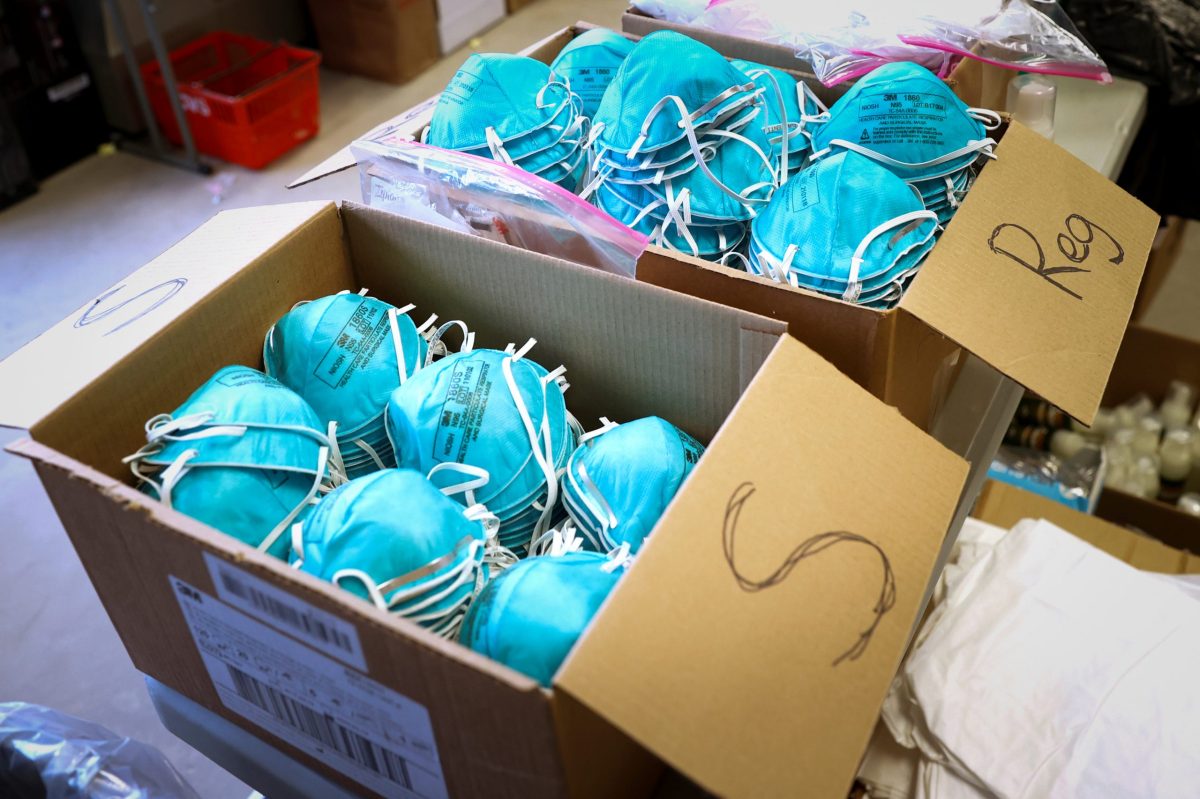More than 10,000 New York state residents have contracted coronavirus, and Governor Andrew Cuomo said Saturday that state government is busy procuring everything needed to treat those who will likely become ill in the months to come.
As of Saturday morning, there were approximately 10,356 positive coronavirus cases in the Empire State, with the vast majority of them in New York City (6,211). More than 45,000 COVID-19 tests have been done, which is nearly twice the number of tests conducted in California or Washington state, Cuomo added.
About 1,600 of the statewide coronavirus cases required hospitalization, Cuomo said. The enormous strain on the health care system is already taking a toll, with mask and gown shortages reported by a number of health care facilities.
Cuomo said Saturday that the state, through its outreach efforts, has procured 2 million N95 masks, half of which would be provided to New York City medical centers.
The state has also bought 6,000 ventilators — vitally needed to treat COVID-19 patients who contract life-threatening pneumonia — from vendors across the globe. The devices will be sent to New York over the next several weeks and distributed where needed.
After speaking with the Trump administration, Cuomo noted that the state is working with the U.S. military to set up four field hospitals at the Jacob Javits Convention Center in Manhattan. The field hospitals will serve a combined 1,000 coronavirus patients.
Working with the U.S. Army Corps of Engineers, the state is also looking to establish four temporary hospitals at the Westchester County Center, SUNY Stony Brook, SUNY Old Westbury and the Javits Center — which Cuomo said is massive enough to accommodate both temporary and military field hospitals.
Referring to President Trump’s federal disaster declaration for New York state signed Friday, Cuomo said that the Federal Emergency Management Agency will cover 75% of the cost of New York state’s response to the coronavirus crisis. The state would be responsible for the remaining 25%, but the governor wants FEMA to waive that responsibility.
“If there’s any situation where FEMA should waive the 25%, this is the situation,” Cuomo remarked.
The new relief package signed into law this week contains a loophole related to Medicare reforms enacted earlier this year that denies New York state up to $6 billion in relief, Cuomo said. He’s calling on the state’s Congressional delegation to pass legislation removing that loophole, thus giving New York access to that relief.
New York state is also set to conduct immediate trials of a drug therapy program to help coronavirus patients in the most serious condition, Cuomo added.
“President Trump spoke to this drug therapy,” Cuomo said. During a Friday press conference, Trump spoke about the potential of hydroxychloroquine, which is used to fight malaria, as a potential treatment for coronavirus — something which has been disputed by the World Health Organization. Other anti-viral drugs, however, are being considered.
The FDA will be sending “10,000 doses” of anti-viral drugs to the state, Cuomo said. He added that Regeneron, a pharmaceutical company located in New York state, is “showing promising results” on its research for a treatment or cure for coronavirus, and has been exempted from the “no-work order” issued Friday.
The governor also announced that the state is seeking psychiatrists, psychologists and therapists who might be interested in volunteering their time for a new mental health teleconferencing program. This would allow residents feeling stress or anxiety during self-quarantines to speak to someone without leaving home.
Any mental health professional interested in participating in this program can sign up at health.ny.gov/assistance.



































